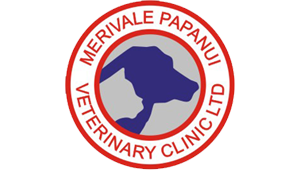Library
-
Many behaviors are normal but problematic for a particular person or household. Some behaviors are not normal and may be unsafe for the pet or for others. The first step is to ask your veterinarian to examine your pet for signs of physical illness. Then, a behavior consultation can be scheduled to assess the behavior and design an appropriate treatment strategy.
-
Behavioral treatment plans almost always include behavior medication. Many dogs and cats can also benefit from medication that helps them learn more efficiently. When pets are very anxious, they may not be able to learn well. Drugs can help speed up the learning process. Many safe medications are available and fortunately, side effects are not common. It is important to have a behavioral and physical health assessment before giving medication.
-
As pets age, they may experience changes in their physical and behavioral health. When treating pets with behavioral concerns, is important to identify and treat both the behavioral illness and any underlying medical conditions that may cause or exacerbate the behavior. It is a misconception that pets lose interest in participating in activities just because of their age. Addressing behavioral health can improve the quality of life for seniors for many years.
-
As pets age, they may lose some of their cognitive abilities. Age-related brain changes are not reversible, but there are medications, supplements, and environmental enrichment opportunities that may slow the decline. Underlying medical conditions should be treated to keep senior pets comfortable.
-
There are numerous products on the market that have been designed to help prevent undesirable behavior in dogs. Leashes, harnesses, and head halters are needed to keep pets under control, especially when outdoors.
-
Foraging toys are designed to provide mental and physical exercise and enjoyment by simulating hunting and seeking for food. Both dogs and cats are natural hunters and scavengers. They benefit from exercising this part of their brain on a regular basis. Providing enrichment in the form of foraging toys can decrease boredom, improve enjoyment, and encourage dogs and cats to engage in species-specific behaviors in a desirable way.
-
Foraging toys are great for dogs and cats. They can be filled with treats or with the pet's regular food as an alternative to feeding from a dish. They offer mental and physical exercise while also providing benefits from sensory stimulation as they search for their meals. Dogs in particular benefit from the opportunity to solve puzzles in order to access food.
-
Seeking guidance before obtaining a new pet can prevent many behavior and health problems in pets. Such a consultation will help you select the best pet for the household, but also provide information on how to prepare in advance for the new arrival.
-
Marker-based training such as clicker training is a positive reinforcement technique that allows great precision and can help animals learn complex behaviors. Charging the marker, marking correctly, and building a reinforcement plan will help with successful training.
-
Tellington TTouch is a technique developed by Linda Tellington-Jones for conditioning relaxation through gentle massage. The technique can be used in behavior modification programs designed to treat stress and anxiety in people and many species of animals.
